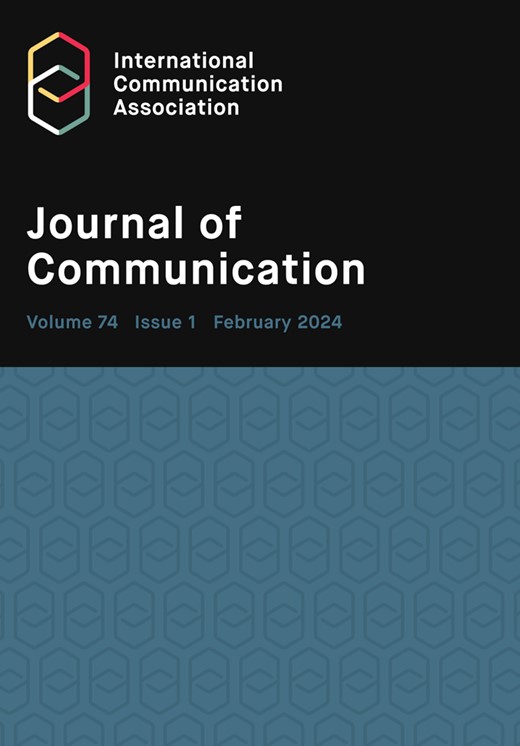Engagement with partisan Russian troll tweets during the 2016 U.S. presidential election: a social identity perspective
IF 5.5
1区 文学
Q1 COMMUNICATION
引用次数: 1
Abstract
Operatives working for the Russian Internet Research Agency (IRA) infiltrated social media with the goal of disrupting the 2016 U.S. presidential election. We investigate how these operatives or “trolls” leveraged partisan political identities in discussing presidential candidates and parties on Twitter. Adopting a social identity lens, we conceptualize retweeting troll content as a form of identity performance and examine the message properties that led troll tweets to resonate among Twitter users. The findings highlight the importance of partisan trolls’ persistence in tweeting about candidates and parties as well as their discussion of the political outgroup and incivility in the form of name-calling. The results collectively indicate that Twitter users were sensitive to messages generated by IRA trolls and responded in a manner consistent with identity performance.2016年美国总统大选期间与俄罗斯党派喷子推特的接触:一个社会身份的视角
为俄罗斯互联网研究机构(IRA)工作的特工渗透了社交媒体,目的是破坏2016年美国总统大选。我们调查了这些特工或“喷子”如何利用党派政治身份在Twitter上讨论总统候选人和政党。采用社会身份视角,我们将转发巨魔内容概念化为身份表现的一种形式,并研究导致巨魔推文在Twitter用户中引起共鸣的消息属性。研究结果强调了党派喷子坚持在推特上谈论候选人和政党的重要性,以及他们讨论政治外群体和以辱骂形式的不文明行为的重要性。结果表明,Twitter用户对IRA喷子生成的消息很敏感,并以与身份性能一致的方式做出回应。
本文章由计算机程序翻译,如有差异,请以英文原文为准。
求助全文
约1分钟内获得全文
求助全文
来源期刊

Journal of Communication
COMMUNICATION-
CiteScore
11.60
自引率
5.10%
发文量
41
期刊介绍:
The Journal of Communication, the flagship journal of the International Communication Association, is a vital publication for communication specialists and policymakers alike. Focusing on communication research, practice, policy, and theory, it delivers the latest and most significant findings in communication studies. The journal also includes an extensive book review section and symposia of selected studies on current issues. JoC publishes top-quality scholarship on all aspects of communication, with a particular interest in research that transcends disciplinary and sub-field boundaries.
 求助内容:
求助内容: 应助结果提醒方式:
应助结果提醒方式:


